Readme.ai
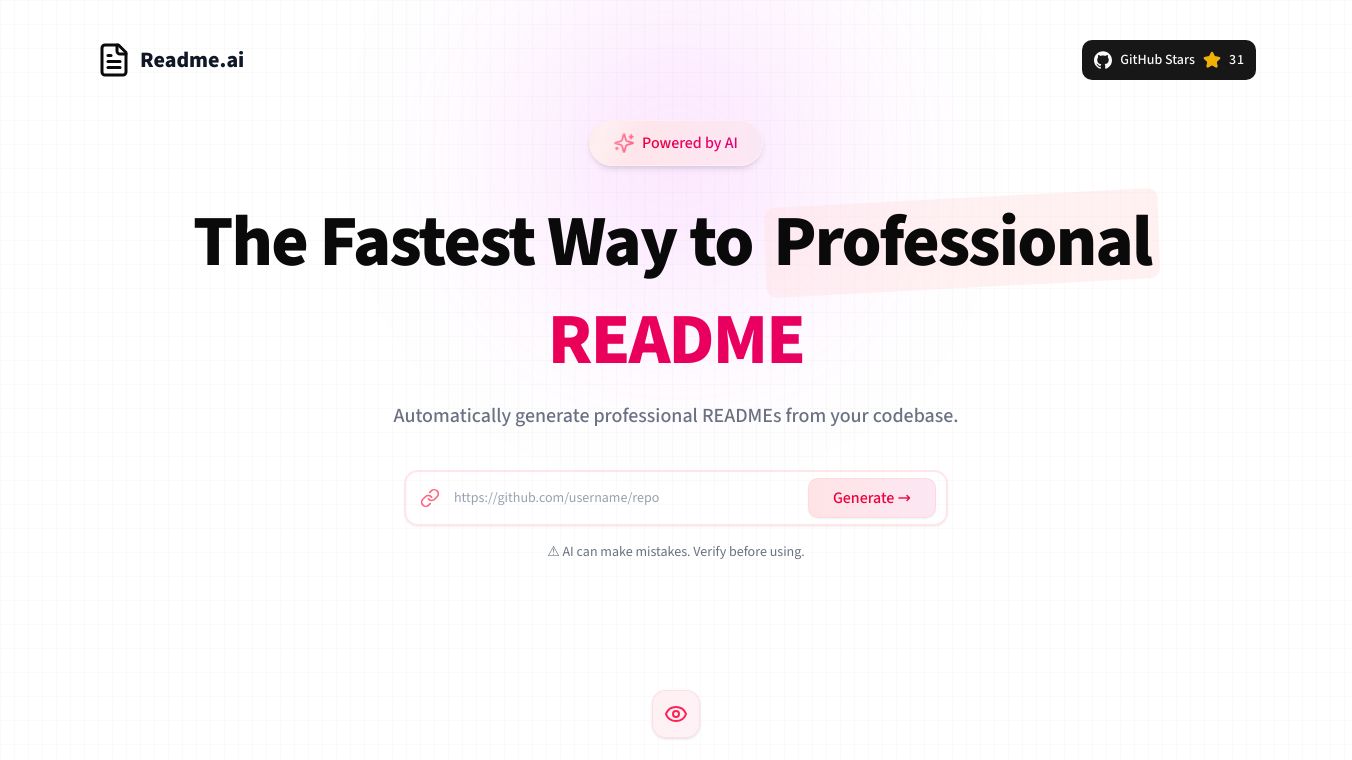
ReadMeAI: The AI-Powered README Generator for Developers
ReadMeAI is a tool designed to simplify the process of creating documentation for developers. It uses artificial intelligence to generate comprehensive README files based on code and brief descriptions provided by users. This tool is particularly useful for developers who find writing documentation time-consuming or challenging. By automating the initial draft of a README, ReadMeAI allows developers to focus more on coding and less on documentation.
Benefits
Effortless Documentation
With ReadMeAI, users can upload their code files and provide a brief description of their project. The tool then generates a comprehensive Markdown file for the README, making the documentation process seamless and efficient.
Seamless Collaboration
ReadMeAI promotes well-structured READMEs with essential sections, which makes it easier for team members to understand and contribute to the codebase. This fosters smoother collaboration and ensures that everyone is on the same page.
Increased Efficiency
Developers often spend a significant amount of time writing boilerplate documentation. ReadMeAI automates this process, freeing up valuable time for coding, testing, and other crucial project tasks. This increased efficiency can lead to faster project completion and better overall productivity.
Use Cases
API Documentation Kick-Off
ReadMeAI provides a solid foundation for API documentation. It generates an initial draft outlining API endpoints, parameters, and expected responses. This jumpstarts the documentation process and allows developers to focus on the specifics of their API's functionality.
Rapid Prototyping and Documentation
During rapid prototyping, functionality often takes priority over documentation. ReadMeAI bridges this gap by quickly generating a basic README with core information. This ensures that documentation is in place while developers focus on building the prototype.
Open Source Project Kick-Off
For open source projects, ReadMeAI can jumpstart the documentation process. By providing the codebase and a brief description, ReadMeAI generates a well-structured README file with essential sections like installation instructions, usage examples, and contribution guidelines. This saves time and ensures consistent documentation across projects.
How It Works
ReadMeAI converts code and descriptions into a well-formatted README file. Users can upload their code files and describe their project in a few words. The tool then generates Markdown code for the README, which can be edited in real-time using a built-in editor. Changes are previewed instantly, allowing users to customize the README according to their needs. The final README can be downloaded in both Markdown and HTML formats.
Technical Stack
ReadMeAI is built using a robust technical stack that includes:
- Node.js: Handles server-side logic and interactions.
- Express: Manages routing, middleware, and request handling.
- Google PaLM API: Generates Markdown READMEs based on uploaded code and user descriptions.
- Embedded JavaScript (EJS): Renders dynamic content on the server side.
- Cascading Style Sheets (CSS): Adds styling to the generated Markdown content.
- JavaScript: Adds interactivity to the front end and handles client-side logic.
Getting Started
To get started with ReadMeAI, users need to clone the repository and follow the instructions to build and run the application. The tool is designed to be user-friendly, with a clean and modern interface that makes it easy for developers of all skill levels to use.
What's Next
The creators of ReadMeAI plan to enhance the tool with features like GitHub integration, custom templates, and improved AI models such as Llama. By adopting newer technologies and architectures, they aim to make ReadMeAI even more powerful and efficient, making it an indispensable tool for developers worldwide.
This content is either user submitted or generated using AI technology (including, but not limited to, Google Gemini API, Llama, Grok, and Mistral), based on automated research and analysis of public data sources from search engines like DuckDuckGo, Google Search, and SearXNG, and directly from the tool's own website and with minimal to no human editing/review. THEJO AI is not affiliated with or endorsed by the AI tools or services mentioned. This is provided for informational and reference purposes only, is not an endorsement or official advice, and may contain inaccuracies or biases. Please verify details with original sources.
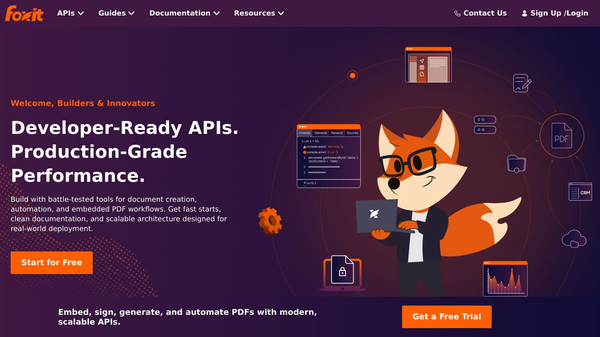
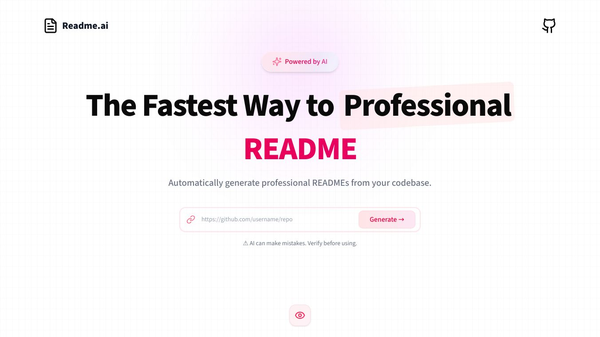
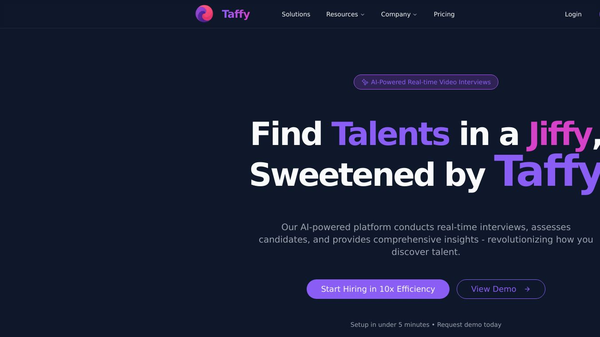
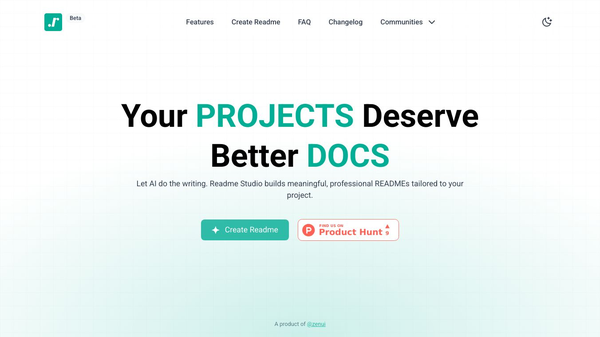
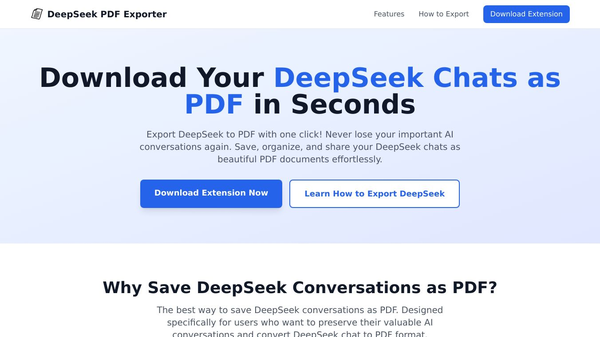
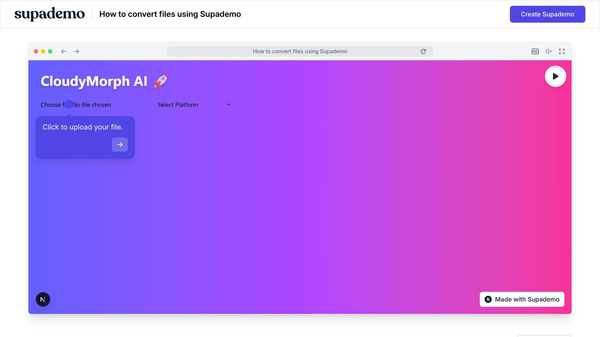
Comments
Please log in to post a comment.